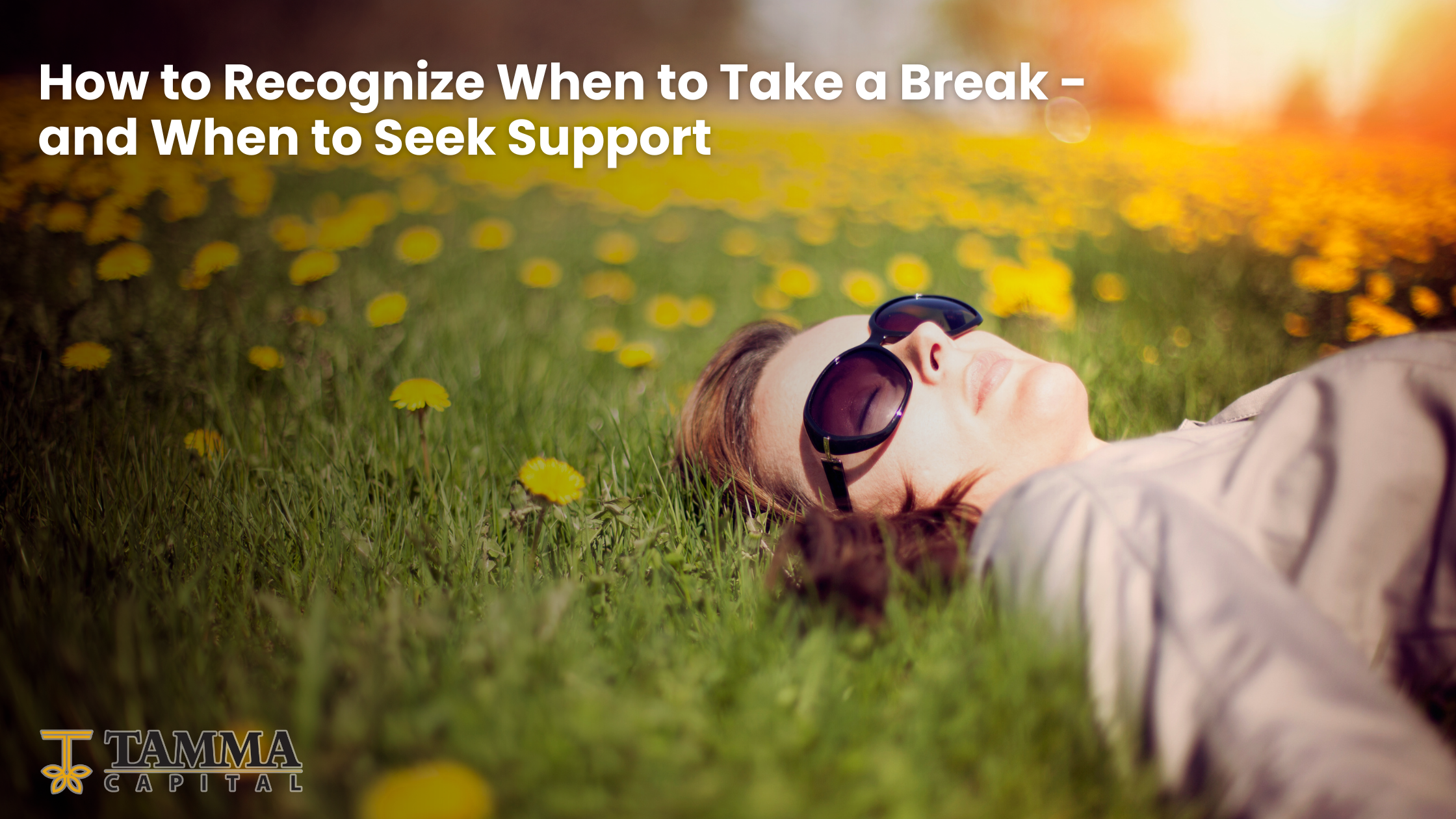How to Recognize When to Take a Break—and When to Seek Support
Everyone looks forward to that long-awaited vacation—a break from the day-to-day grind, a chance to recharge and reconnect. But how often do you find yourself falling ill the moment you finally relax? Or, when your schedule resumes, does your free time seem to vanish in a blink? If these scenarios sound familiar, you’re not alone. The interplay between stress, recovery, and the societal expectation to “earn your rest” is both a common experience and a signal that we may need to rethink how we care for ourselves—and when we should seek outside help.
Why We Get Sick When We Slow Down
There’s a reason so many people catch a cold come holiday break, or feel run down at the start of a vacation. It’s not just bad luck: our bodies often defer real recovery until we finally let up. During sustained periods of stress, our nervous systems accumulate what’s referred to as allostatic load—essentially the wear and tear from constantly being “on.” When you hit pause, your body seizes the opportunity to heal, often resulting in a crash.
As frustrating as this cycle can be, it’s normal. Our bodies send clear signals: if you don’t schedule your rest, your body will do it for you—often at the least convenient time. Instead of seeing this as a weakness, recognize it as valuable feedback. It’s your system telling you it’s time to slow down, preferably before you reach the breaking point.
Why It’s Hard to Rest—Especially for Americans
For many, especially in American culture, there’s a pervasive belief that rest—and even asking for help—must be earned. This can make breaks a rare luxury rather than a regular necessity. Many of us push through exhaustion due to work ethic, pride in productivity, or a sense that we’re only valuable when we’re “doing.” Paradoxically, this mindset often makes us less effective, less present, and less able to show up for the people and responsibilities we care about.
The good news? Small, regular “investments” in rest can have a compounding effect on your wellbeing, just like making small consistent contributions to a financial account. You don’t need an extravagant two-week vacation to reset. Incorporate five-minute “mini vacations” throughout your day—a quick walk, a deep breath, a moment to simply look out the window. These seemingly minor pauses help recalibrate your nervous system, making it more resilient over time.
From Awareness to Action: Making Breaks a Habit
Of course, knowing you “should” take breaks doesn’t mean you’ll actually do it. Change starts with awareness, but requires deliberate action. Many people benefit from physical reminders—post-it notes near your workspace, a phone alarm at lunchtime, or pairing a relaxing activity with something you already enjoy (a cup of tea, your favorite podcast, or a walk after a challenging meeting).
Another effective strategy is to schedule rest after high-stress activities. After a tough call or demanding project, plan for a few minutes to reset. By stacking new habits onto existing routines, you increase the odds that they’ll stick.
Is It Time for Professional Help?
Sometimes, making small changes isn’t enough. Maybe the strategies above don’t bring relief, or you find yourself consistently overwhelmed, stuck in unhealthy cycles, or unable to bounce back. These signs may indicate it’s time to seek professional support—whether that’s through therapy, coaching, or another trusted advisor.
Common reasons people seek therapy include:
Ongoing interpersonal challenges (relationships, work, family)
Persistent symptoms of anxiety, depression, or trauma
Realizing you’re repeating patterns you want to change, especially those passed down through generations
A sense that “something isn’t working,” even if you can’t name a specific diagnosis
Importantly, you don’t need to have a “serious” mental health condition to benefit from therapy. Most people reach out after months—sometimes years—of thinking about it. The decision often comes when an issue interferes with your relationships, job, family, or ability to enjoy life.
There are, however, times when seeking support is non-negotiable. If emotional struggles are affecting your daily functioning, relationships, or safety (like thoughts of self-harm or harming others), professional help isn’t just beneficial—it’s essential.
You’re Not Alone
Much of the hesitation around asking for help comes from the belief that everyone else is coping just fine. Social media amplifies this illusion, showing only people’s highlight reels and successes rather than the messy reality of everyday life. The truth is, everyone struggles in their own way. Seeking support is a sign of self-awareness and strength—not a personal failing.
Whether through therapy, group support, or simply building healthier rest habits, remember: you don’t have to do it all alone. Listen to your body’s signals, embrace sustainable, consistent self-care, and reach out when you need a helping hand. You—and those you care for—will be better for it.

